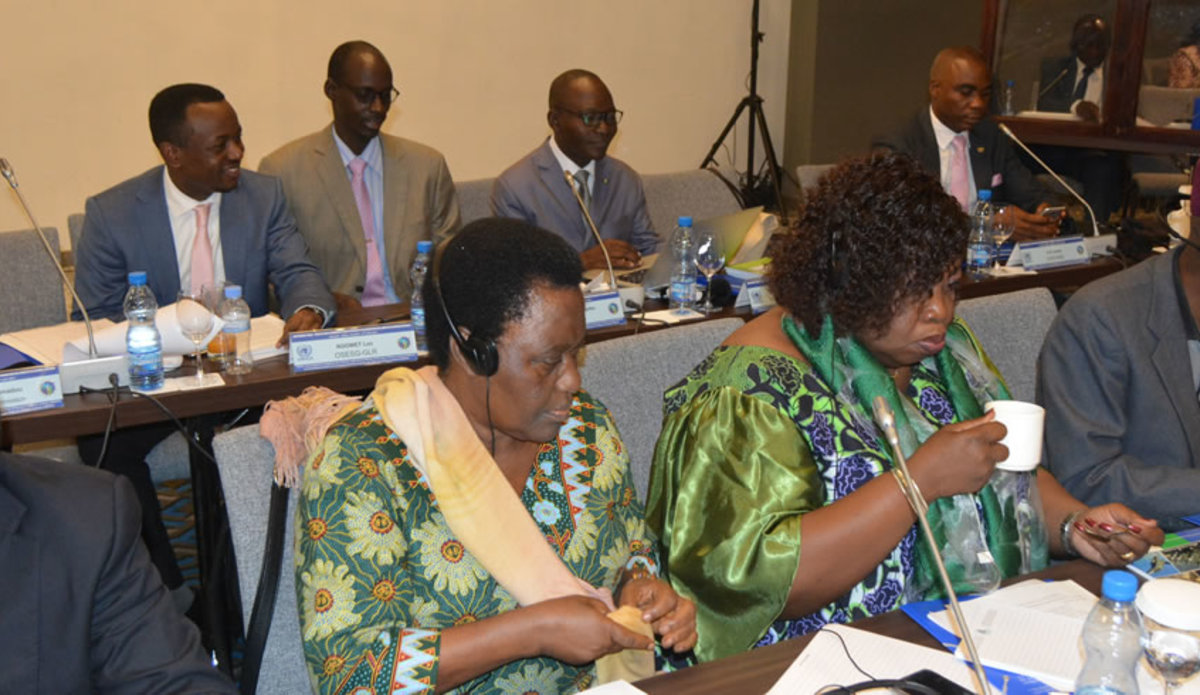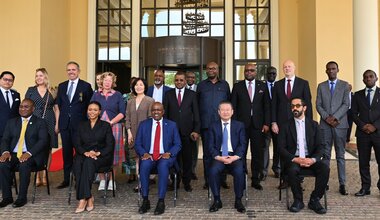UN, regional and civil society organizations strengthen their partnership in early warning and conflict prevention in Central African states
Libreville (Gabon), 1 August 2017 - Representatives of the United Nations Regional Office for Central Africa (UNOCA) and the Secretariat of the Economic Community of Central African States (ECCAS) met on 31 July and 1 August 2017 at a workshop in Libreville, Gabon, aiming to enhance the participation of civil society in conflict prevention and mediation efforts in Central Africa. The overall objective of the meeting was to facilitate dialogue between ECCAS and civil society on partnering for early warning and conflict prevention in Central African states. This objective is consistent with the 2017 Action Plan of the ECCAS Mechanism for Early Warning in Central Africa (MARAC).
The workshop was inspired by the recognition of the urgent need to enhance cooperation and partnership with civil society organizations in preventing conflicts and sustaining peace, as encouraged in various United Nations and African Union policy instruments, including in the United Nations Secretary-General’s vision on conflict prevention, the African Union’s Agenda 2063, and the Joint United Nations-African Union Framework for Enhanced Partnership in Peace and Security. This workshop is also consistent with the 2009 Kinshasa Declaration of the Heads of State and Government of ECCAS and various political declarations and protocols of the Economic Community of West African States (ECOWAS).
Historically, the MARAC operationalization process, which commenced in 2006, included the establishment of “decentralized correspondents” in each of the 11 ECCAS member states. The role of these correspondents, some of whom selected from civil society organizations, was mainly to support in-country data collection for ECCAS’s early warning system on the basis of an indicator template covering political, security, economic, socio-cultural and humanitarian issues as well as regional dynamics.
Participants at the workshop included civil society representatives from ECCAS and West Africa as well as members of the ECCAS Secretariat, and officials from UNOCA, the Office of the United Nations Special Envoy for the Great Lakes region, the United Nations Office for West Africa and the Sahel (UNOWAS), the United Nations Development Programme (UNDP), and the United Nations Educational, Scientific and Cultural Organization (UNESCO).
 UN
UN





